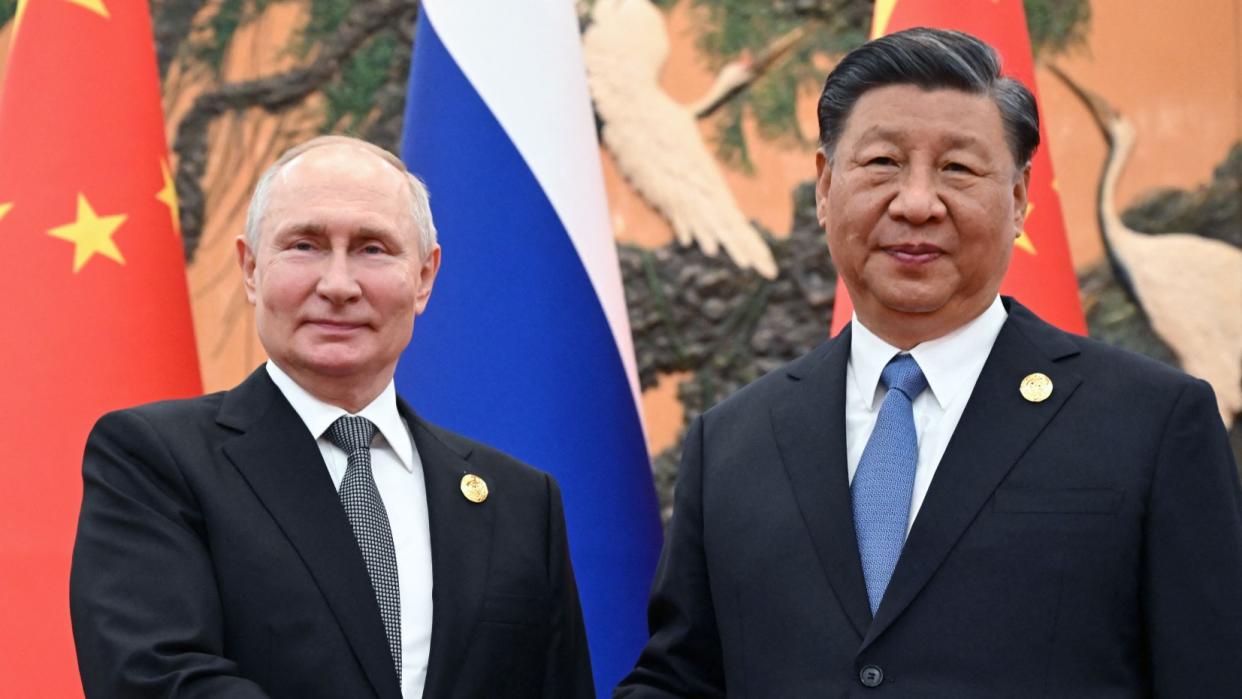Crink: the new autocractic 'axis of evil'

Britain faces "the most dangerous" years since the end of the Cold War, with an "axis of authoritarian states" colluding against the West, Rishi Sunak has warned.
The UK and its allies must belatedly acknowledge the growing collusion among China, Russia, Iran and North Korea, Rishi Sunak said during a speech yesterday. Echoing that warning, former Conservative leader Iain Duncan Smith told The Times that this axis is "determined to end Western values", which would mean "an end of human rights and the rule of law".
MPs cautioned last month that the UK and other Western governments needed to devise a strategy to deal with this increasingly "coordinated and assertive axis", said the i news site – or World War Three would be "inevitable".
What are the Crink nations?
The acronym Crink (China-Russia-Iran-North Korea) was coined last year by Peter Van Praagh, president of the Halifax International Security forum in Washington, following the Hamas attacks in October.
The term, a play on the Brics nations, describes "a new alignment of nations where global democracies' strategic challenges now originate", said the annual conference statement.
China's threat towards Taiwan and its aggression in the South China Sea, Russia's war on Ukraine, and Israel's war in the Middle East (part of its decades-long conflict with Iran and its regional proxies) are separate conflicts with differing agendas.
But in Washington, it is "increasingly common" to view them as part of "one big narrative", said Adam Taylor in The Washington Post. The Crink nations differ starkly in ideology; the coalition is better understood as a "marriage of convenience" – and desperation.
How are China, Russia and Iran working together?
The four provide weaponry and oil for each other to "evade sanctions imposed by the West", said the i news site. Experts warn they are working "more closely together" in the background of conflicts in Ukraine, the Middle East and Africa.
Iran has been playing an "important role" in Russia's war, said Eliot A. Cohen in The Atlantic. Iranian drones "fly every night at Ukrainian cities", to reveal air defences and "pave the way" for Russian missiles.
In return, Russia reinforced Iran's defences against Israeli strikes with Russian weapons, said Taylor. This is part of a "strategic alliance" forged by Russia's invasion: a "mutually beneficial relationship" between two pariah states.
China, the most significant Crink nation, has also provided "a trade lifeline for Russia" since its invasion sparked western sanctions.
This week President Xi Jinping will welcome Vladimir Putin in China for the Russian president's second high-profile visit in less than a year, "the latest sign of their growing alignment", said CNN.
China also maintains close ties with Iran, providing it with support that has similarly diminished the impact of sanctions. The deepening relationship is driven by "mutual interests", said The Diplomat: China's "insatiable energy needs and Iran's quest for economic and diplomatic support". But it is underpinned by "a shared narrative of resistance against perceived Western hegemony".
At the heart of this geopolitical maelstrom lies China's "increasingly assertive global posture". Its deepening relationship with Iran and Russia can be understood through the lens of its "burgeoning superpower rivalry" with the US.
What is North Korea's role?
North Korea, perhaps the most unpredictable of the Crink nations, is taking advantage of the fragmenting international order to ramp up pressure on the US and South Korea.
Alongside its military development over the past few years, North Korea has been "chumming up to Russia and remaining on the right side of China", said The Times's Asia editor Richard Lloyd Parry.
Since Russia invaded Ukraine, the relationship between Pyongyang and Moscow has flourished. North Korea has provided Russia with much-needed ammunition and war materials in exchange for the "advanced technology" that Pyongyang covets, said Taylor.
North Korea's leader Kim Jong Un visited Russia last autumn, his first foreign trip since 2019, and pledged closer military cooperation with Putin.
North Korean weapons were also used by Hamas in the 7 October attacks on Israel, according to the Israeli and South Korean military. North Korea denies this, but has sold anti-tank rocket launchers to Hamas in the past.
What is the Crink end goal?
The target of the Crink coalition is not the overthrow of a "rules-based international order", said Cohen, but rather of the "American-led world order" of the past 75 years. To achieve their goals, the major Crink players are "increasingly willing to use open violence" and to threaten the use of nuclear weapons.
Crucially, three out of four Crink nations are nuclear-armed, and Iran is "not far off", said Taylor.
Ultimately, said Cohen, "they are united by a growing belief that their moment is coming, when a divided and indecisive West, richer but flabbier, will not fight".


